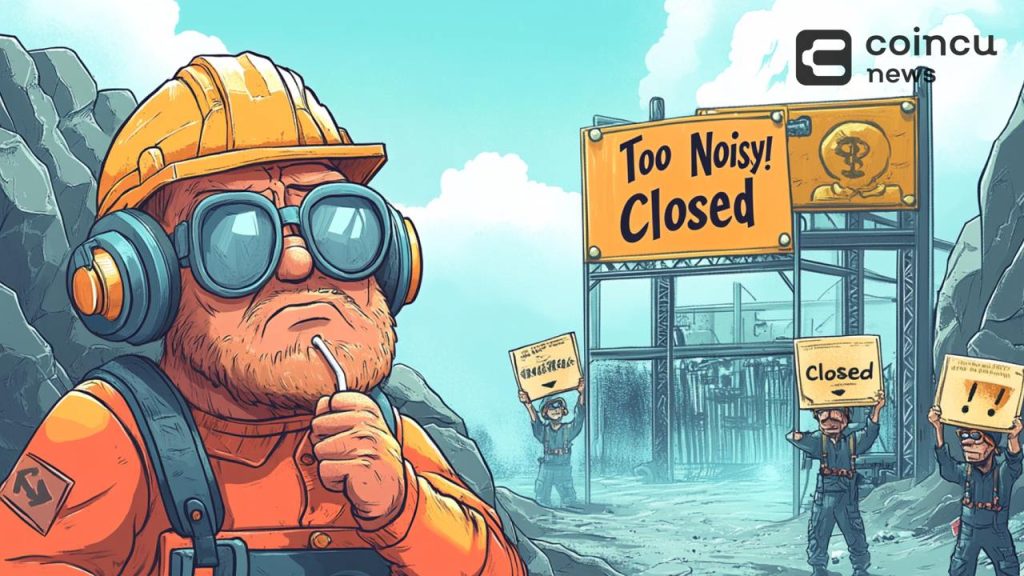Bitcoin Mining Facility Shutdowns In Minnesota Over Noise Concerns
Key points:
- Plans for a Bitcoin mine that could have “flattened out” energy bills for residents of a Minnesota town were withdrawn by Revolve Labs amid potential noise complaints.
- The withdrawal follows similar news last week when residents of a Norwegian town faced a 20% energy bill hike after noise complaints led to a local facility being shut down.
Revolve Labs withdrew its Bitcoin mining facility proposal in Windom, Minnesota, after residents raised concerns about noise pollution and its impact on home values.

Bitcoin Mining Facility Faces Community Pushback
After cries from the locals about noise and house values, Revolve Labs stopped plans for a Bitcoin mining facility in Windom, Minnesota. It would bring in a service fee of $35,000 per month but was met with objections due to the noise pollution, mainly connected with problems associated with an already existing facility in Glencoe.
Residents have questioned the benefits of mining Bitcoins, calling for a ban on projects like that. Though the company, Revolve Labs, reassured, the town seemed divided on whether they favored economic benefits against environmental and societal impacts.
Read more: Bitcoin Mining Difficulty Reaches New Peak Causing Difficulties For Miners
Unintended Consequences of Bitcoin Mining Shutdowns
A decision by Revolve Labs mirrors other turnoffs of global Bitcoin mining, including in Norway, where energy costs increased after a facility in the country was closed due to noise complaints. Most Bitcoin mining facilities are built on overcapacity to help stabilize the electricity grid and bring overall costs down, particularly when the demand for it is low.
Proponents will argue that such centers have some advantages: at least a waste of energy is minimized and the fixed costs of the grid are distributed. Still, residents near the mining sites would rather avoid the noise than undergo probable increases in electricity rates.
| DISCLAIMER: The information on this website is provided as general market commentary and does not constitute investment advice. We encourage you to do your own research before investing. |





















